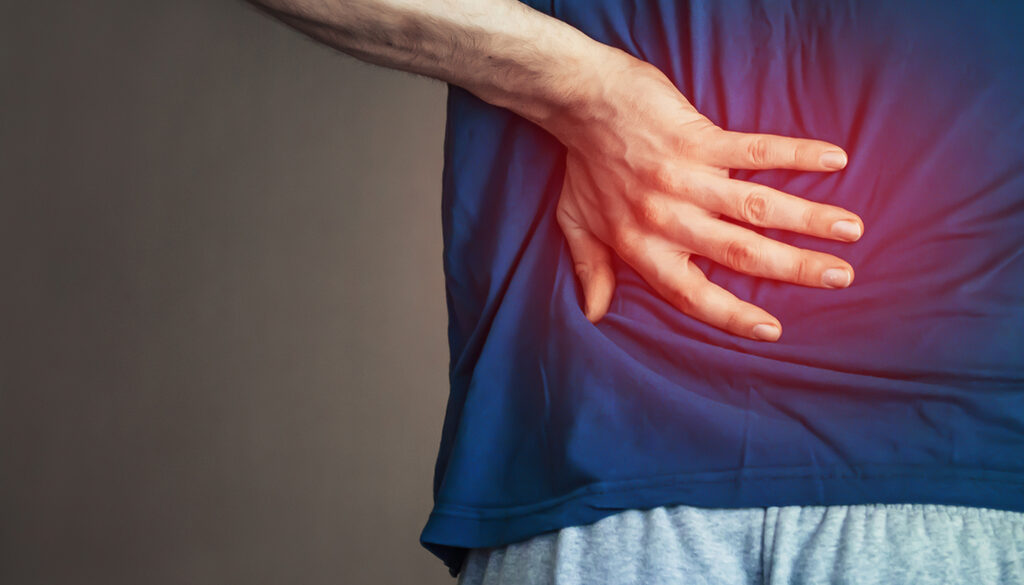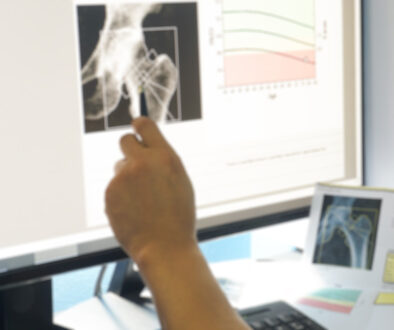How Do I Know if My Back Pain Is Kidney-Related?
It’s very common for many people to have difficulty determining the difference between kidney pain and back pain because of the location of the kidneys. However, discovering this difference is important in order to help your internal medicine doctors in Raleigh at Raleigh Adult Medicine find solutions to treat your pain and manage any conditions that are causing them.
We’ll take a closer look at some of the subtle differences between kidney and back pain, the most common causes of kidney pain, and when you should contact us for an appointment.
How to Tell the Difference Between Kidney Pain and Back Pain
First, it helps to have a more specific idea of where the kidneys are located. They are underneath the ribcage on either side of the spine. Because of this, many people mistake kidney pain as back pain (and vice-versa).
Back pain is typically found in the lower back, while trouble with the kidneys results in a pain that is deeper and located higher on the back. The discomfort from kidney problems may also migrate to other regions such as the abdomen or groin.
What Are the Most Common Causes of Kidney Pain?
There are several potential causes of kidney pain, and we’ll review a few of them and how they are created.
Kidney Stones
An estimated half-million people are taken to emergency rooms every year due to the pain and problems of kidney stones. According to the National Kidney Foundation, at some point, 1 in 10 people will have a kidney stone.
Kidney stones have become more prevalent in the U.S. over the last 10 years, which may be due to the increase in diseases such as diabetes, obesity and high blood pressure. These conditions can potentially increase your risk of developing kidney stones.
What Are Kidney Stones?
Kidney stones are hard, solid objects made of minerals and salts that are created inside your kidneys. These minerals and salts stick together when the urine is extremely concentrated, and passing them through the urethra can be very painful.
What Causes Kidney Stones?
Kidney stones form when chemicals and wastes in the urine build up and crystalize, creating a solid mass that will gradually get larger if it is not passed through the body.
What Are the Symptoms of Kidney Stones?
Severe pain is one of the hallmark symptoms of kidney stones. Some others include:
- Blood in urine
- Chills
- Nausea
- Fever
- Foul-smelling urine
- Cloudy urine
There are several effective treatments for kidney stones, so if you are experiencing any of these symptoms, please contact us so we can create a plan to help you.
UTI (Urinary Tract Infections)
If bacteria remain after urinating, it can set the stage for a UTI. Symptoms will include:
- Fever
- Fatigue
- Painful urination
- Cloudy urine
Typically, UTIs are easily treated with antibiotics, but we’ll need to review your situation to determine if this solution is right for you.
Kidney Infections
Kidney infections—also known as pyelonephritis—happen when you have bacteria from a bladder infection spread to your kidneys. The result is a series of repeated infections that, in extreme cases, can damage your kidneys.
Signs of a kidney infection are:
- Fever and chills
- A burning sensation when urinating
- A strong urge or need to urinate
- Pain
- Vomiting
- Nausea
Polycystic Kidney Disease
This is a genetic condition—those who have relatives with the disease are much more likely to have it themselves. It causes expanding cysts to develop inside your kidney, and they can grow to the point that they interfere with kidney function.
Symptoms include:
- Pain
- High blood pressure
- A full feeling in the abdomen
- Blood in the urine
- Headaches
- Kidney stones
- UTIs
When You Should Call Us
First, if you’re experiencing any type of back pain, we want to hear from you. By getting help early, we can help pinpoint the exact cause to determine if your back pain is kidney related or another condition.
If you are experiencing any of the following, it’s important for you to schedule an appointment with us:
- Fever
- Painful urination
- Urine that is discolored
- Consistent, repeated urges to urinate
- Solid material, such as kidney stones, in the urine
- Signs of blood in the urine
- Weakness or lethargy
Raleigh Adult Medicine: Compassionate Internal Medicine Doctors in Raleigh, NC
It’s sometimes difficult to tell the difference between back pain and kidney pain. Often, there are subtle cues that can be easy to overlook. That’s why we want to help you alleviate your pain, regardless of whether the source is your kidneys or another condition.
By allowing us to be your medical home, we’ll be with you on your journey to live a healthier life. Through regular physicals and compassionate care, we can help you manage conditions like back pain and chronic diseases such as diabetes and high cholesterol.
Contact us for an appointment today.
For more than 20 years, Raleigh Adult Medicine has served as the Triangle area’s premier internal medicine provider. We tailor our treatments to provide the finest personalized health care available for each stage of your adult life. Contact us to schedule an appointment.




